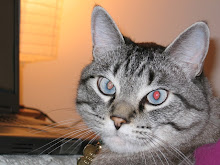so I am gearing up to go to San Diego for the american educational research association. It is always a good time and very stimulating intellectually. 20-25,000 people representing all flavors and types of educational research. It is definitely the place to be as an educational researcher. Purdue will have a reception so I can go there....and USU, in conjunction with BYU and U of U will have one also. I present on monday and then get a best paper award on wednesday, so that will be fun. But apparently it will be colder in san diego than in logan utah. Go figure. I wished it was warmer so I could go to the beach.
So what does this have to do with education you might ask? Well, aside from it being an education conference, I think some of my greatest learning in graduate school happened at conferences. Not so much in being exposed to new ideas, though that was part of it. But also in understanding the academic game. I know it may sound harsh and self-deprecating, but I think it is accurate to call the academic system in a way a game. It has rules and regulations and certain ways things work, and you really have to get beneath the surface to understand that. You can't just read it in a book. You need to learn through acculturation, as Collins Brown and Duguid - dubbed by a certain instructional technologist as the situated learning crowd - aptly noted. It's unfortunate that many graduate students do not get to experience presenting at conferences, as it gives great experience for preparing for the job hunt, is well regarded by search committees, and can potentially help students to realize the nature of the academic enterprise. Academics, like anyone else, are humans. They want to work at work and not work when they are not at work. So when you see a famous scholar outside of the conference hall, you say hi and talk about non-work stuff. When you present the goal is not to give a flawless presentation that leaves the audience with no questions, but rather you want to intrigue the audience about your paper enough to have questions and want to read it.




